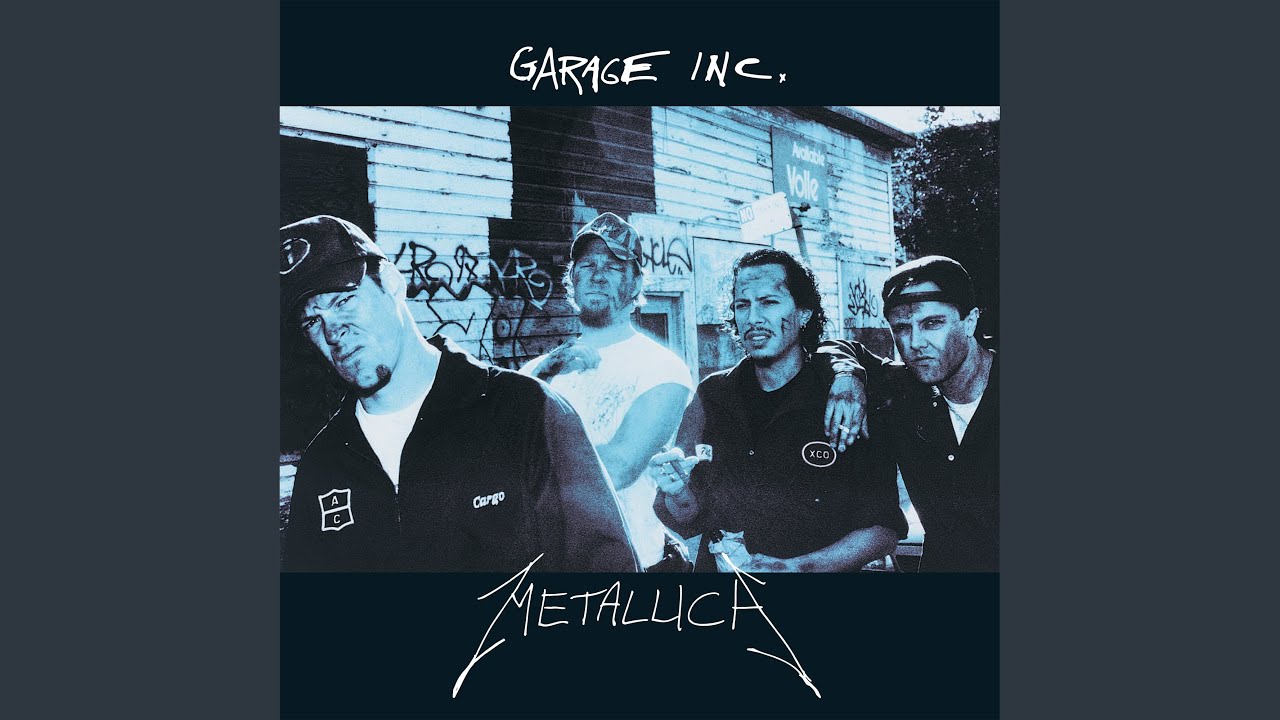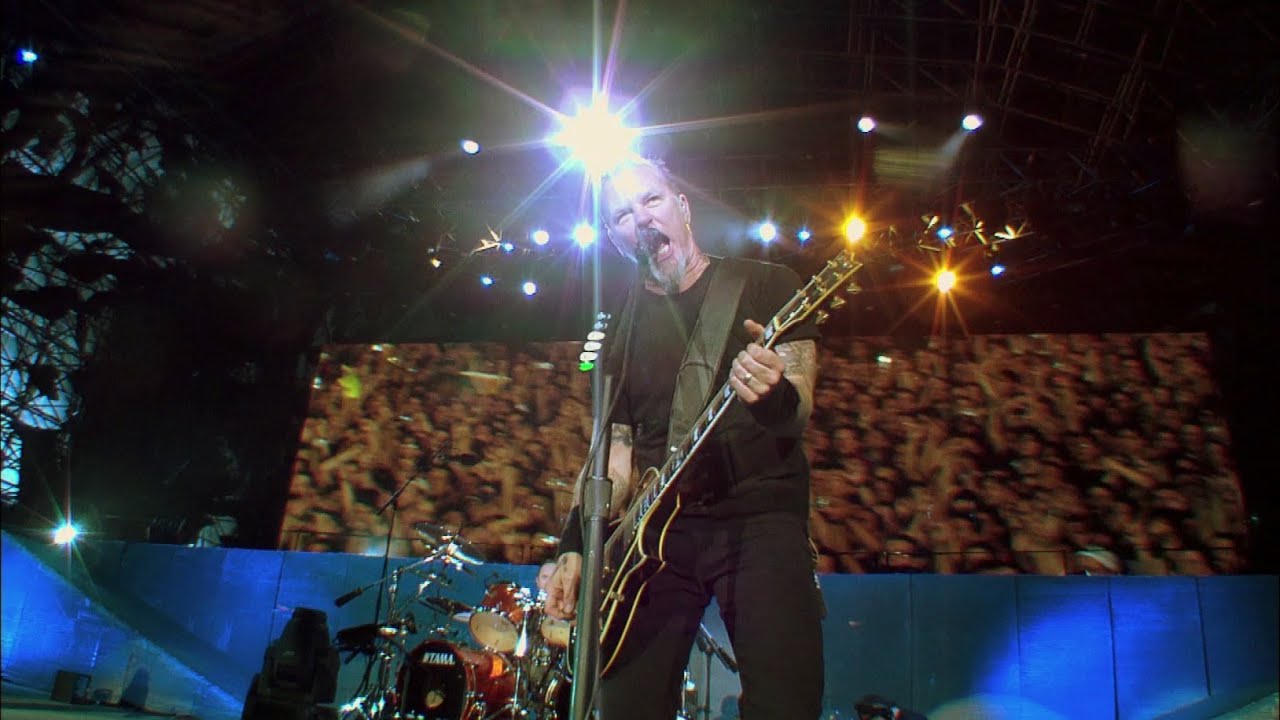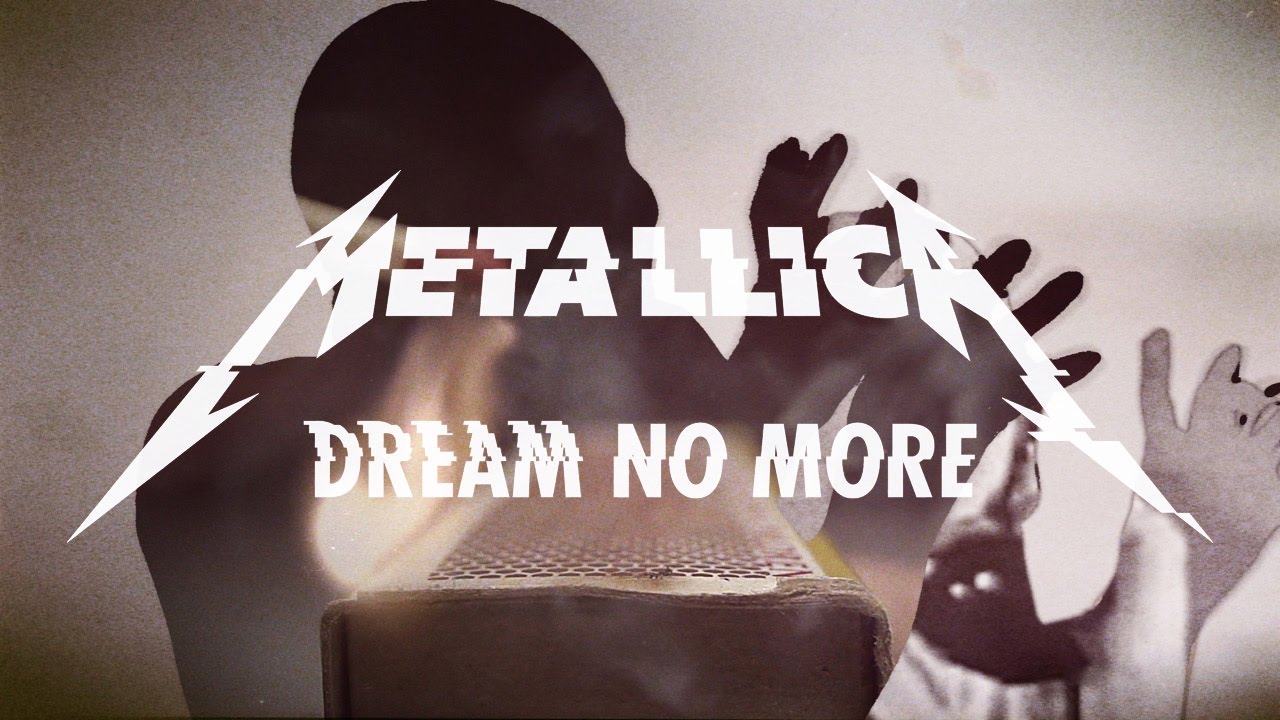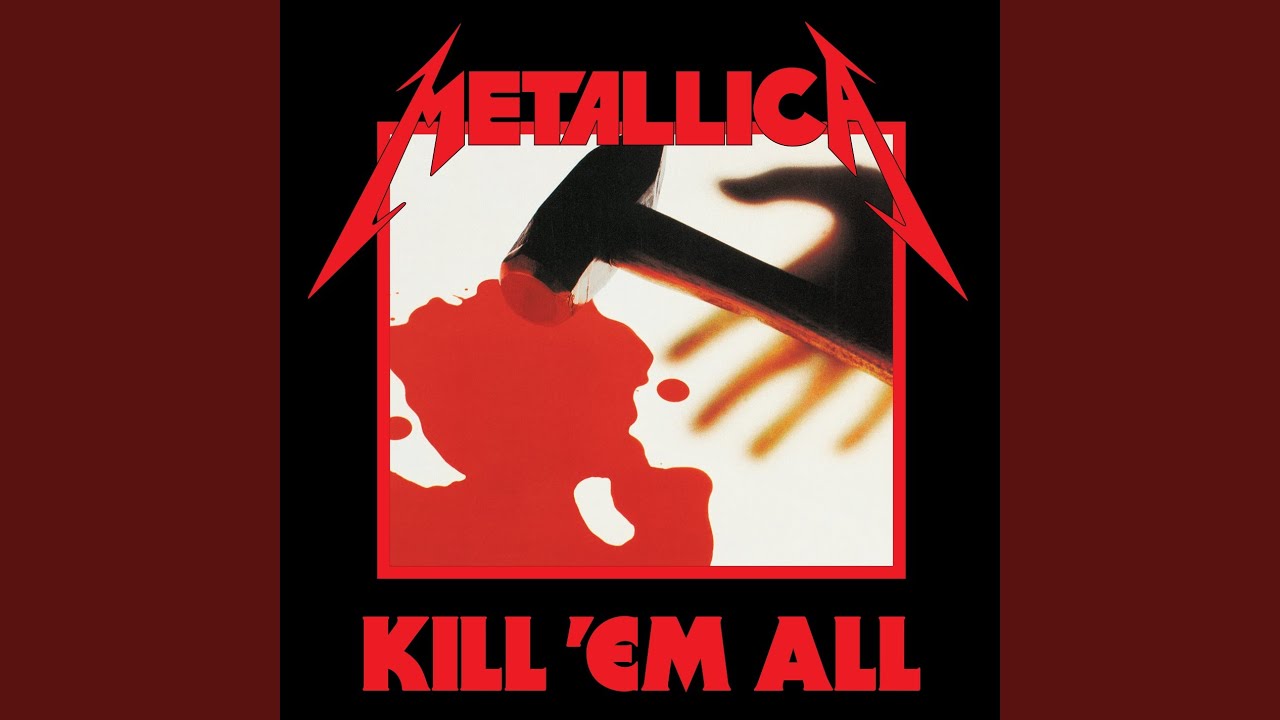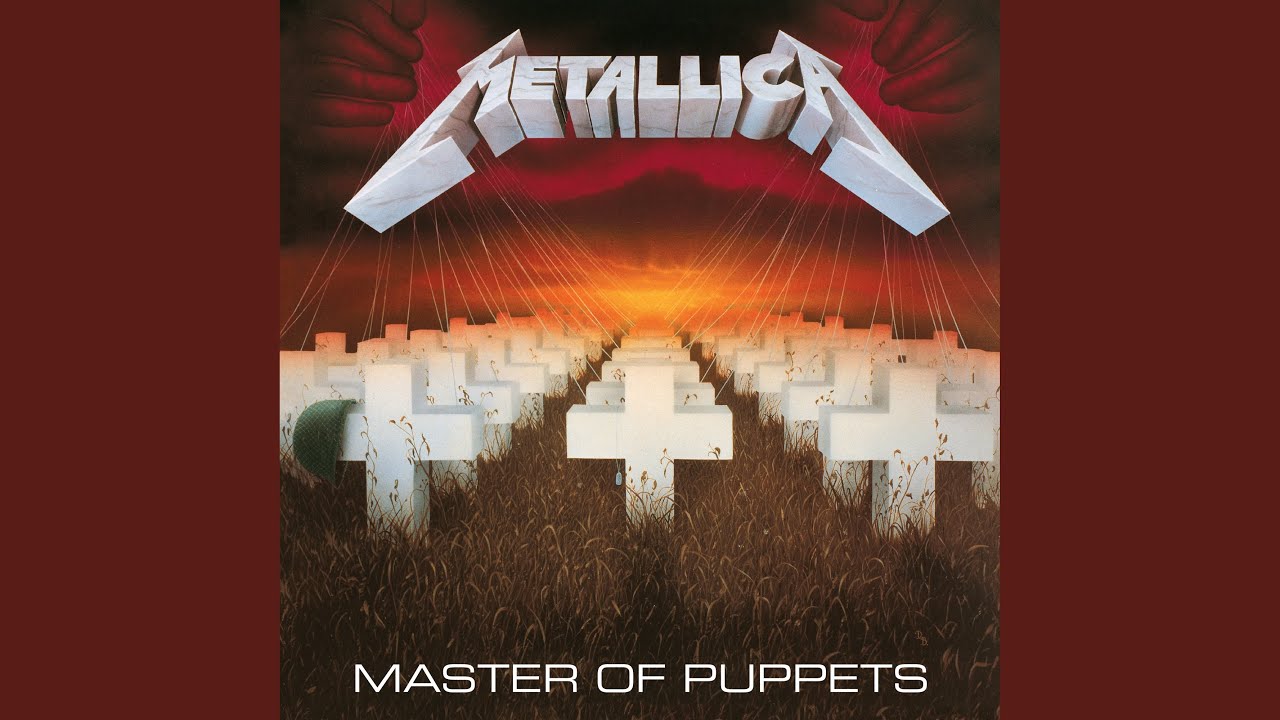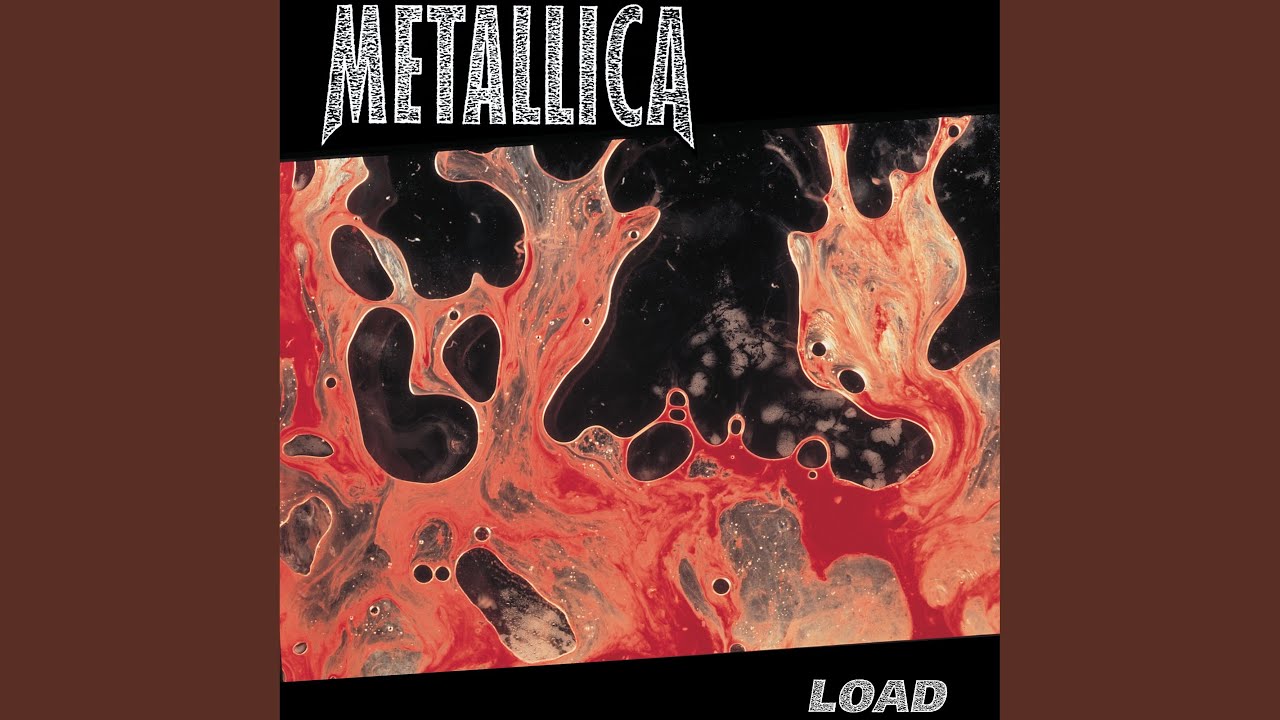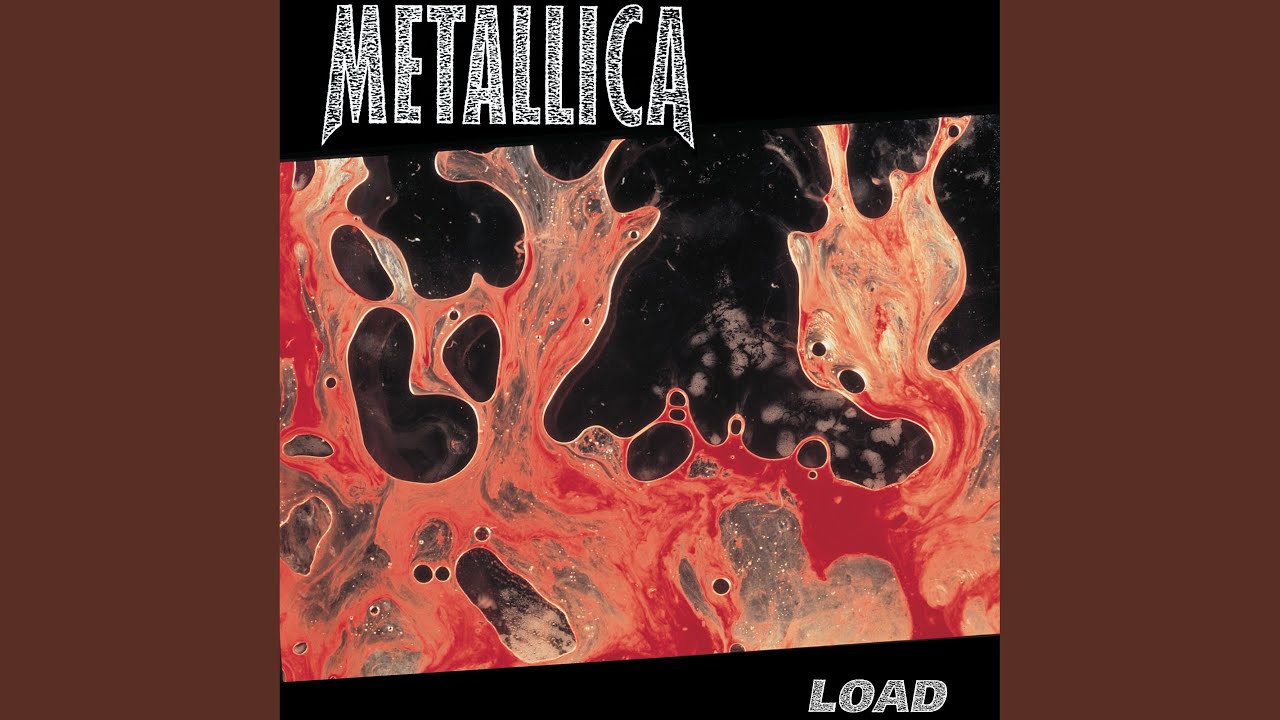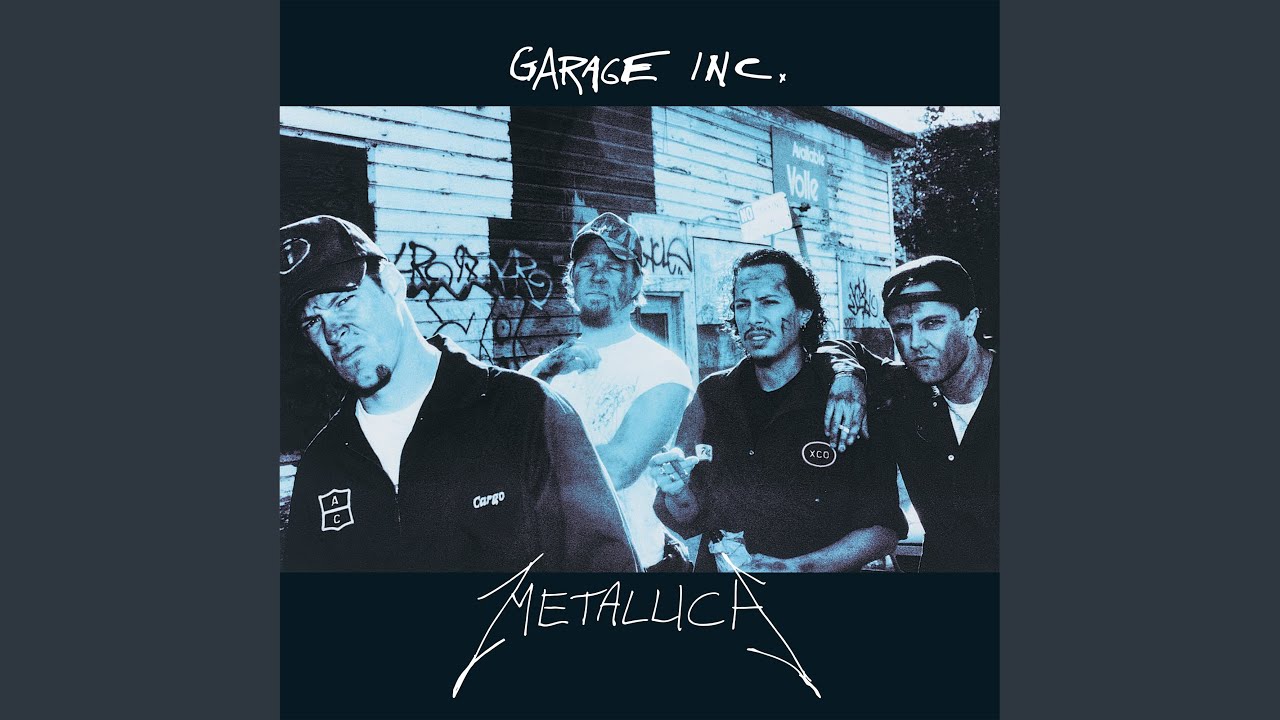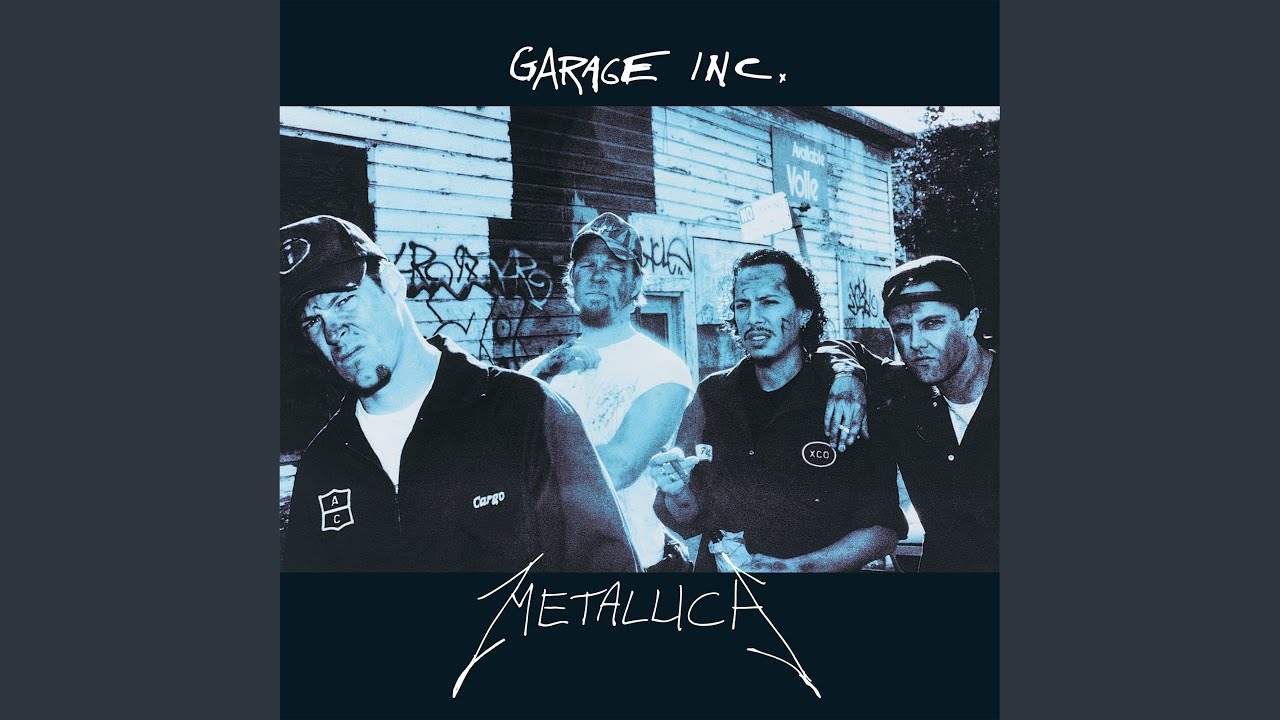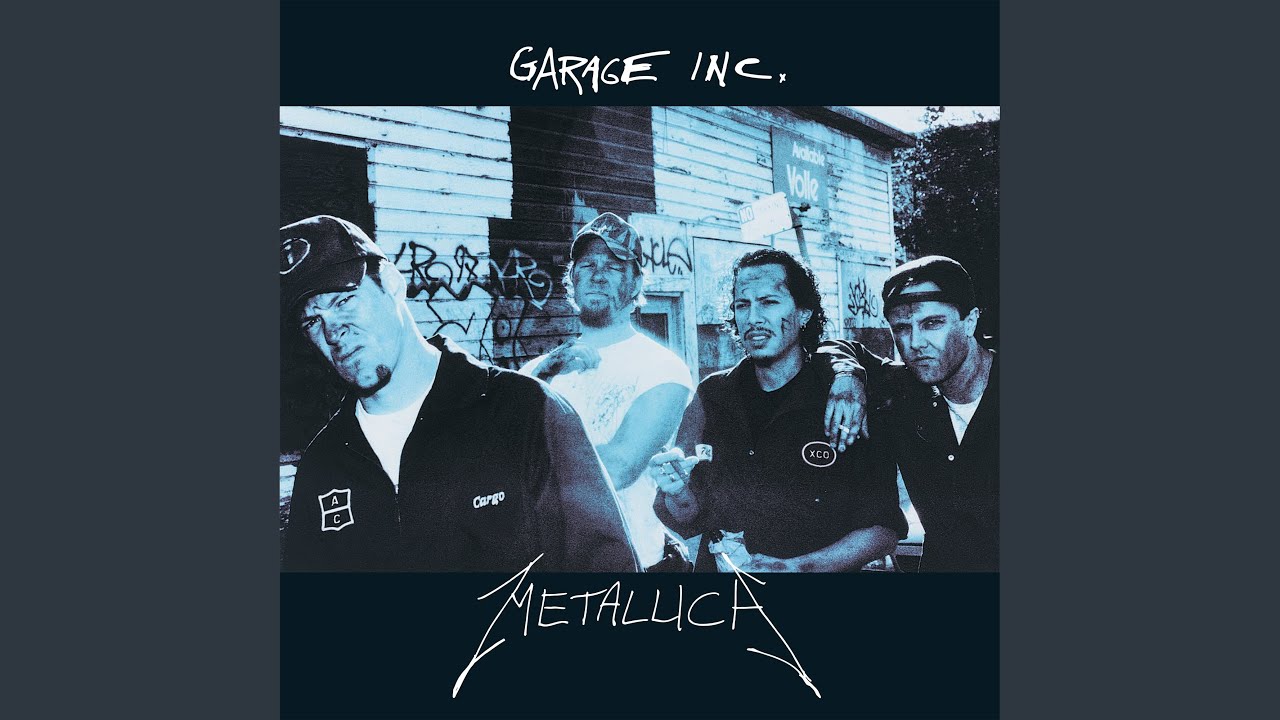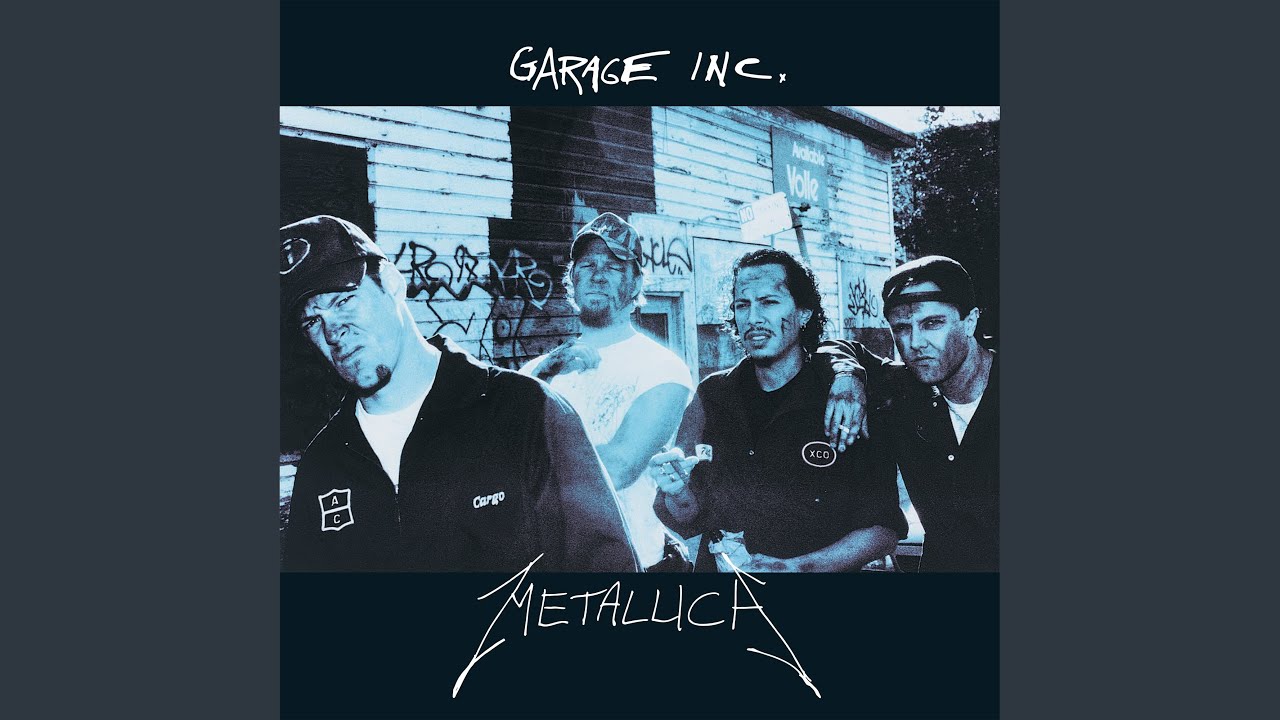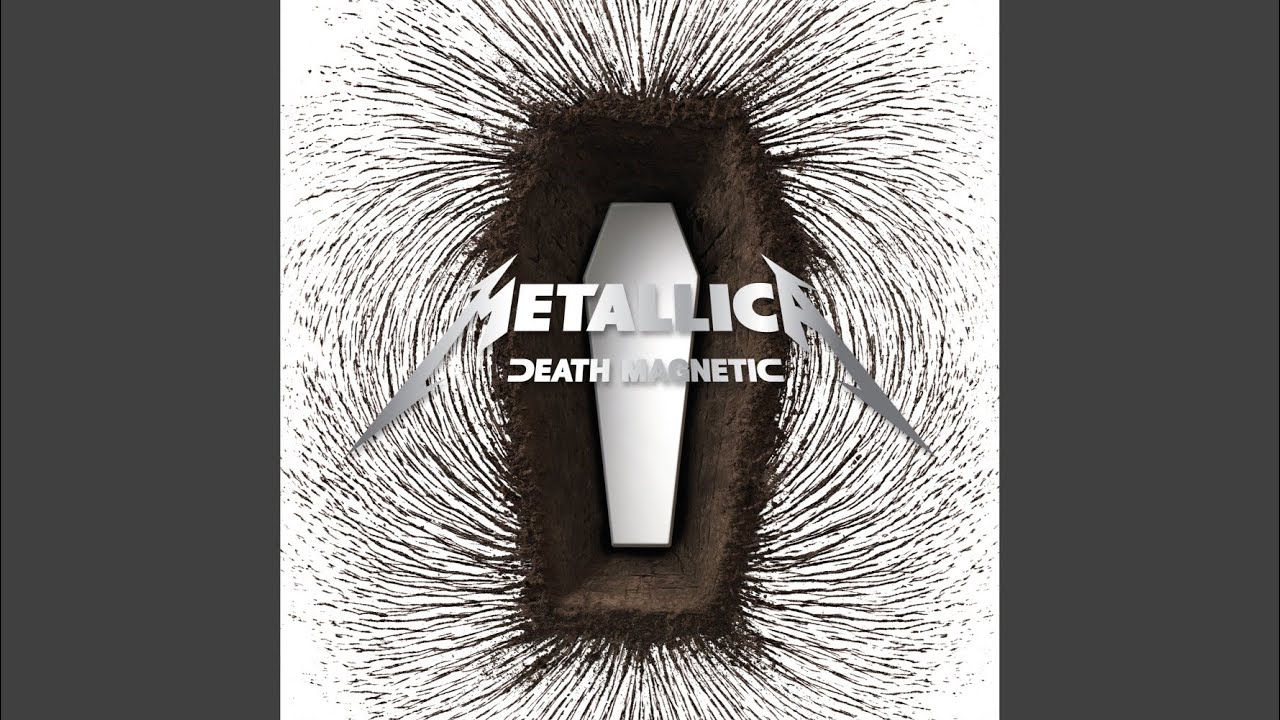’All Within My Hands’ (2003) from St Anger
St Anger was a raw, unruly and messy album, but yielded some of Metallica’s gnarliest songs. ‘All Within My Hands’ – the album’s finale – is typical of the ragged, first draft-approach of the songwriting. Overlong and overbearing, and verging on the psychotic (“Love is control, I’ll die if I let go!”), the song’s hard grooving breakdown is Metallica’s finest foray into sludgy stoner rock. The song keeps resurrecting itself in a sequence of thrash-outs and actually fantastic double-bass drum work from Lars Ulrich. As if unable to finish the song off for good, there is the infamous ‘Kill!’ section at the end, which is still laughable. The band recently reimagined it as an acoustic number for a charity concert – as if Alice In Chains had covered Led Zeppelin’s ‘Friends’ on MTV Unplugged – which only makes the original recording seem more deranged, with its feedback-drenched and discordant doom metal blow-out ending.
Dan Franklin
’Bleeding Me’ (1999) from S&M
The foundation stone of the Load album, in retrospect ‘Bleeding Me’ is James Hetfield’s starkest cry for help – an intimation of the struggles with addiction that derailed him some years later. In this live version for S&M, Michael Kamen’s orchestra comes into full effect, acting like the sea buoying Hetfield up in his liferaft. The song swells, crashes and recedes, only to come back more powerfully again, anchored to an insistent melodic refrain that conveys Hetfield’s grim determination: “I’m digging my way to something better.” Muscular and light of touch, anthemic but not overblown, confessional yet elusive, this is Metallica at their boldest. Compared to the barbed comments that dog their live performances today (‘Lars doesn’t use a ride cymbal!’ ‘Kirk is sloppy!’ ‘Rob can’t sing back-up!’), the musical precision needed for the occasion saw Metallica touch the sublime.
Dan Franklin
’The Call Of Ktulu’ (1999) from S&M
There exists a tribe of metalhead who yearns for the yelping youths of ‘Whiplash’ – but there was but a year between those thrashing maniacs and the neo-classical worldliness of ‘Fade To Black’, ‘For Whom The Bell Tolls’ and their second album’s audacious instrumental finale, ‘The Call Of Ktulu’. And so we put to you that 1999’s S&M was no metallic misfire, no example of overblown pomposity in the wake of MTV success, no coked-up bender, but a dream that started in 1983 when that Lovecraftian instrumental was first summoned by Messrs Hetfield, Burton, Ulrich and Mustaine. That ostentatious live album – an orchestral collaboration between Metallica and the San Francisco Symphony – is ludicrous but if it’s opening track does not stir the Great Old Ones within you don’t fully appreciate the mastery of Metallica and their slow burn towards genius.
Louise Brown
’Crash Course In Brain Surgery’ (1987) from The $5.98 EP: Garage Days Re-Revisited
Introducing new bug Jason Newsted with its zippy intro, this 1971 song was given new life in Metallica’s beefed-up, tightened-up, heavied-up and generally better version. First released by Welsh headbangers Budgie in 1971, and regarded as heavy in the same unfocused, chaotic sense that Led Zeppelin and Deep Purple were considered heavy, the original ‘Crash Course In Brain Surgery’ doesn’t really compare to Metallica’s huge reimagining. It’s evidence, to these biased ears at least, that Metallica are the cover band’s cover band, improving old songs and sharpening them up to an extent that no-one had managed since Jimi Hendrix reworked all those hoary Bob Dylan whineathons into electrified classics.
Joel McIver
’Disposable Heroes’ (2009) from Orgullo, Pasión, y Gloria: Tres Noches en la Ciudad de México
It beggars belief that Hetfield and Ulrich were only 22 when they wrote this song, one of three or four dynamic peaks on the Master Of Puppets album and a stone-cold Metallica classic to this day. It’s about war, and Hetfield’s lyrics do a reasonably decent job of evoking the misery of combat and the evil manipulation of governments, but where ‘Disposable Heroes’ really stands out is in its musicianship. It’s very fast, for starters, which should be borne in mind by anyone who accuses Ulrich of being a terrible drummer rather than a merely competent one, which he is. Without meaning to get too anal about Hetfield’s guitar playing, his picking on the main riff – a strangely syncopated, accented figure on which Cliff Burton accompanies him effortlessly – makes him one of the most advanced rhythm guitarists in metal, ever. All that gubbins aside, the breathtaking bursts of speed in ‘Disposable Heroes’ elevate it to one of the most gripping songs in thrash metal, making the less adrenalised tracks in Metallica’s later career seem pedestrian in comparison. Find yourself a live version, it’s astounding.
Joel McIver
‘Dream No More’ (2016) from Hardwired… To Self-Destruct
“Chthulu Awaken!!” ‘Dream No More’ saw Metallica return to the mythos created by H.P. Lovecraft for inspiration from the first time since the bestial ‘The Thing That Should Not Be’ off 1986’s Master Of Puppets – 30 years later. The track evokes the crunch & bite found on Death Magnetic and pairs that with some of the locked-in mid-paced grooves from Load, yet also some of the heaviest riffs Metallica have recorded since the Black Album. The dead stop into Kirk Hammett’s searing lead, delivered with his flair for free-falling, is prime Metallica – an impression bolstered by the innate duelling guitar interplay between Hammett and James Hetfield. Metallica turn what could have been a nostalgic throwback to their youthful lyrical inspirations into a contemporary concern that while sourcing musical signifiers from their past, does so with the kind of urgency and passion not often heard from this band since their creative heyday.
Dean Brown
’Junior Dad’ (2011) from Lulu
This writer’s attitude to the Lou Reed and Metallica’s unholy alliance, Lulu, has thawed ever so mildly since suggesting that your time would be better spent wanking into a sock than sampling its dubious contents. Yet for all of its lofty ambitions of attempting to fuse the provocative Lulu plays of German playwright Frank Wedekind with an updated take of the sonic onslaught that Reed first unleashed with White Light/White Heat in 1968, the album still fails to gel thanks to the mismatch of Reed’s deadpan vocal delivery and lyrical concerns, and Metallica’s relentless, garish delivery.
But not everything found in the wreckage of this musical car crash is a twisted and mangled mess. Indeed, the best moments are to be found when Metallica move away from their comfort zone and stretch themselves a bit. ‘Iced Honey’ is up there, but too obvious a choice, coming on like it does as a well-interpreted Lou Reed cover by a metal band trying something new during rehearsals.
No, the real precious metal to be found here is in the shape of the magnificent album closer, ‘Junior Dad’. With lyrics that reportedly reduced both Kirk Hammett and James Hetfield to tears – Hammett had just lost his father and Hetfield’s had abandoned the family while the guitarist was in his teens – Metallica here deliver one of the most considered and nuanced performances of their career. Indeed, this is what you’d imagine New Order to sound like if their stimulants of choice had been steroids.
Driven by a circular and hypnotic riff that induces a much-needed trance after the pummeling that comes before it and punctuated by gloriously serrated power chords, this is the number that actually delivers on the promise made by these disparate and unlikely collaborators. And, best of all, is the concluding eight-and-a-half minute drone that feels like eternity decaying and dying before your very eyes. It almost makes up for the whole mess while giving a tantalizing glimpse of what could have been.
Julian Marszalek
’Motorbreath’ (1983) from Kill ‘Em All
The late producer Paul Curcio did a pretty average job on Kill ‘Em All, by all accounts lazing around and drinking coffee rather than working on giving Metallica a decent sound on their debut album. Still, this proved to be an unexpected benefit for the album’s faster songs, because the record’s thin, mids-heavy tone allowed the sheer number of riffs in songs like this one to be audible. They, and Lars Ulrich’s enthusiastic rather than expert drums, aren’t buried in any modern, full-frequency range sound; instead, they shine out in a punkish, charismatic way. James Hetfield’s picking speed on the final D/C/D/G section is breathtaking, and Cliff Burton does the right thing with the simple structure, not overplaying and simply being supportive. It’s a mesmerising song, especially in its sped-up live incarnation, although the lyrics are laughably puerile.
Joel McIver
‘Orion’ (1986) from Master Of Puppets
Every single second of Master Of Puppets is sheer perfection – it’s heavy metal in excelsis. A sizeable part of the album’s revered legacy is the immaculate ‘Orion’, an instrumental of incredible scope and execution. From its opening bass drones, early statuesque riff ascent, and on to Cliff Burton’s bubbling bass break and the spectacular melodic guitar harmonies and solos that eventually transition to a pulverising metallic coalescence, ‘Orion’ set a high benchmark for (instrumental) metal to come. Masterfully constructed, this odyssey comprised of mini movements highlights the electric chemistry The Four Horsemen had in the mid-1980s, before the untimely passing of the virtuoso Burton. ‘Orion’ therefore stands as an epitaph to Burton-era Metallica’s progressive vision, covering more moods, tonally and instrumentally, than most bands could muster across a full album.
Dean Brown
‘The Outlaw Torn’ (1996) from Load
Tucked away at the tail-end of Load is the best song on the album, a track that holds a special place in the hearts of Metallica fans who didn’t check out after their first four LPs. After trudging through some of the turgid songs that made the second half of the album so uneventful, ‘The Outlaw Torn’ and its dusty Americana vibe reward those brave enough to make the journey across arid terrain. Metallica take the bluesy chug of this album’s overarching sound and balance it with light-and-shade, rise-and-fall songwriting. Bassist Jason Newsted and drummer Lars Ulrich anchor the paired-back verses as chords crash emphatically, leading to monstrous riffs, a piercing wah-wah solo from Kirk Hammett, and a chest-beating vocal performance from James Hetfield. The singer sounds menacing, yet also fragile, particularly as he bellows, “Hear me / And if I close my mind in fear, please pry it open / See me / And if my face becomes sincere, beware.” The song fades out into the Red Sun following a pounding Metallica-stomp.
Dean Brown
’Poor Twisted Me’ (1996) from Load
Metallica are a much funnier, subversive and more satirical act than people give them credit for. It’s no wonder they eventually hooked up with Lou Reed, considering both acts have a track record of confounding their own audience. Back in 1996, the latest instalment of Metallica repelling their ‘hardcore’ fanbase involved getting haircuts, wearing eyeliner, and adopting a grunge-like sound. On another level though, Metallica mocked grunge at the very same time, particularly in the form of ‘Poor Twisted Me’ on which James Hetfield adopted the persona of a whinging solipsistic rock star. Over an appropriately blues-rock groove, Metallica take aim at grunge clichés, not to mention prior generations of self-pitying musicians, the angst-peddling nu-metal scene that was on the ascent and, let’s face it, themselves. They called their next extensive leg of American and European dates ‘Poor Touring Me’ and then didn’t include this track on any setlists. Perhaps they were having too much fun travelling around the world, winding everybody up.
JR Moores
’Sabbra Cadabra’ (1998) from Garage Inc.
Metallica take on the deep-cuts of Sabbath Bloody Sabbath, and win, in this superb cut-up from Garage Inc. The opening rolling and tumbling of ‘Sabbra Cadabra’ is positively uproarious and deeply fun, but it’s when Metallica segue in fleet-footed style into the (uncredited) ‘A National Acrobat’ that this cover really gets a grip on your psyche. The leaden stop-start riffage is a super-heavy biker brand of psychedelia that makes you wish Metallica had taken the odd LSD trip more often. Hetfield’s vocals are particularly good, taking Ozzy’s melody lines down several registers with real verve. As the song revs back into the ‘Sabbra Cadabra’ slice of the Sabbath sandwich, it gives Metallica’s more celebrated cover of ‘Whiskey In The Jar’ a serious scare in the process.
Dan Franklin
’The Small Hours’ (1987) from The $5.98 EP: Garage Days Re-Revisited
Metallica are nerds, which is the point. They’d probably be insulted if you didn’t call them nerds, because what else are you going to call a band formed by weirdo NWOBHM obsessives who live thousands of miles away from Britain. Thus their many covers of stuff from the time/place, and thus their cover of Holocaust’s ‘The Small Hours’, originally from the Edinburgh band’s 1983 Hot Curry And Wine live album. As first heard on 1987’s The $5.98 EP, it follows the gallop of ‘Helpless’ by slowing things down. It’s as broodingly threatening as the original, maybe a bit punchier with Lars’s drums than the original, definitely a little more raspy with Hetfield’s vocals where John Mortimer has a richer swagger, and speeding it up/shredding it out some on the break because, of course, it’s Metallica. And it works, because they’re trying to get through to you, in their own special way.
Ned Raggett
’So What’ (1991) b-side of ‘Unforgiven’
It figures that Metallica would treat one of the most famously foul songs in the rock canon with genuine affection. What their version of Anti-Nowhere League’s signature tune (and now a Metallica live staple) loses in visceral impetus, it gains in the clarity with which James Hetfield’s California drawl relishes filthy lyrics at times swallowed up by the estuary vowels and glottal stops of Nick “Animal” Culmer.
Having recorded it as a b-side, the band wanted to play it with Animal himself on their next visit to England, in October 1992. But, so legend has it, in those largely offline days a pseudonymous fellow from a disbanded and all but forgotten punk group wasn’t easy to track down: “It’s not like you can just look in the phone book for ‘Mr Animal’.” Eventually tipped off by a former bandmate, Animal sang it at Wembley Arena; as a direct result, he leads a version of ANL to this day – a rather touching variation on the likes of the Stones reviving the careers of the old bluesmen who inspired them.
David Bennun
‘The Wait’ (1987) from The $5.98 EP: Garage Days Re-Revisited
Between the years 1984 and 1989, Metallica were increasingly viewed as pretty much the coolest thing on an entire planet by a vast legion of lank-haired and excitable youths. Yet in retrospect, this wasn’t just the insouciant yet classy fashion in which they spearheaded (and eventually) transcended the rise of thrash but the musical broad-mindedness they displayed along the way. Much as was to occur in the early-90s when any band cited as an influence by Kurt Cobain suddenly saw their popularity skyrocket, any band with the patronage of the four horsemen from the drop-dead horrorpunk of Misfits to the heroically unfashionable Budgie has risen in stature in their wake. Few metal bands would have been listening to REM in the mid-80s, as Cliff Burton was obsessively in the wake of the Murmur record, and fewer still would have made such a decent fist of Killing Joke’s nihilistic post-punk dirge-dredger, whose march to damnation sounds all the more ominous and prescient for its journey through ‘tallica terror.
Jimmy Martin
‘That Was Just Your Life’ (2008) from Death Magnetic
It was important for Metallica at the time to return to their thrash roots in an effort to banish the sour stench of the beyond-dire St. Anger from the minds of frustrated fans. Thankfully, Death Magnetic album opener ‘That Was Just Your Life’ immediately confirmed that Metallica were still capable of writing dynamic compositions. An ominous doom-laden intro signals in the first of many tempo changes, as the pace quickens with groove-driven thrash riffs underpinned by a re-energised Lars Ulrich. The interplay is tight and dynamic throughout, and James Hetfield spits the surging verses with gusto. Most importantly, however, lead guitarist Kirk Hammett was allowed to unleash a dexterous signature solo once again, which set up a NWOBHM-channelling harmony section before the song culminates with an insistent battery that a blown-out Rick Rubin production job can’t even diminish.
Dean Brown



